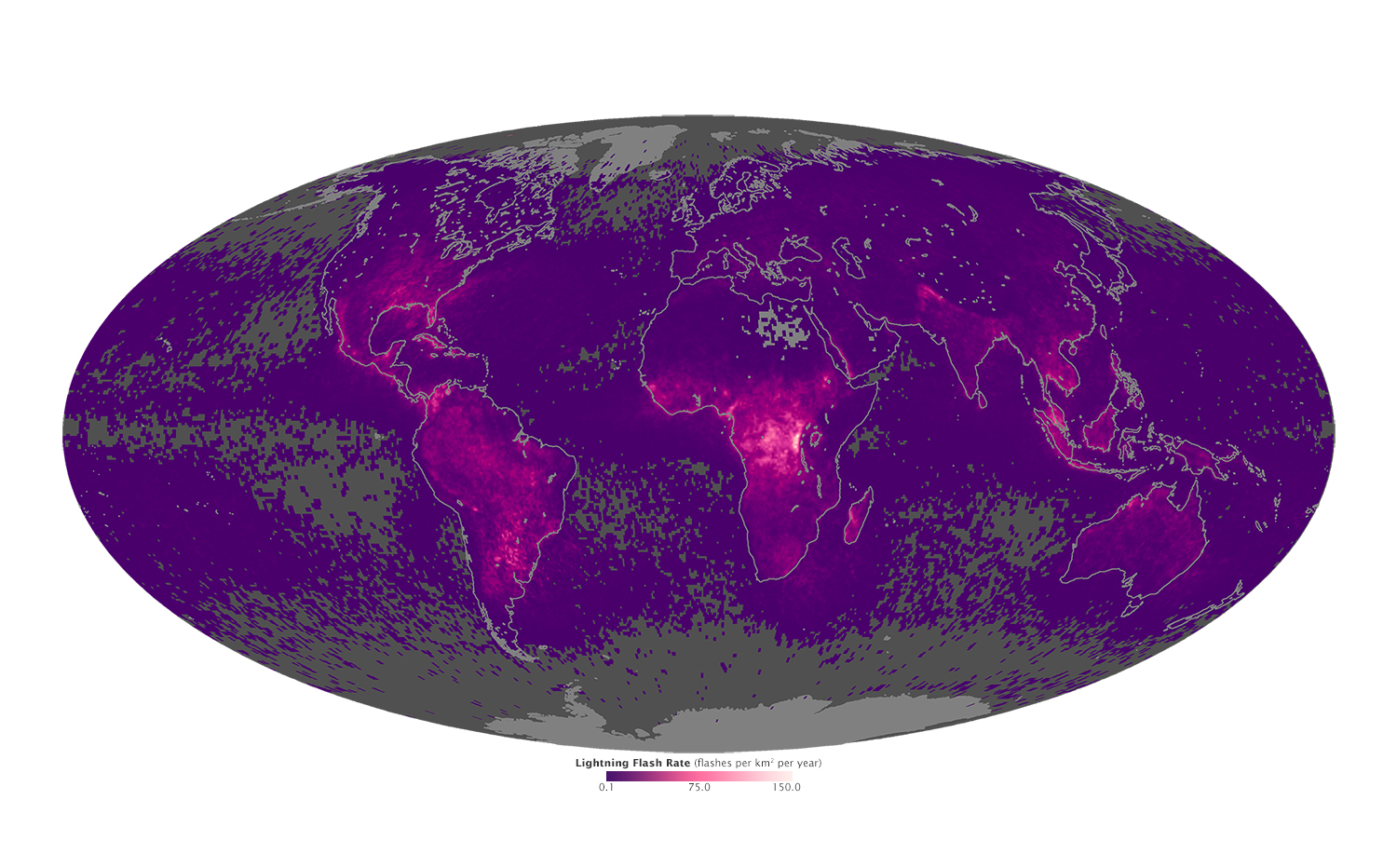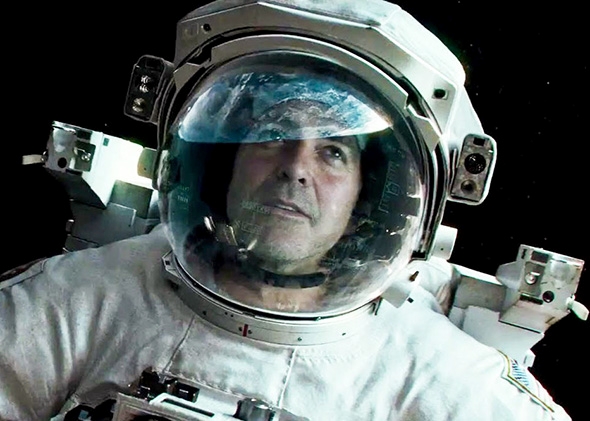Showing posts with label NASA. Show all posts
Showing posts with label NASA. Show all posts
Saturday, 18 April 2015
Map! Lightening Does Strike More Often than you Imagine
Forget what you've been told, lightning definitely does strike twice.
Around the planet, lightning strikes around 40 to 50 times a second, and depending on where you live, you could be in for a whole lot more action.
NASA's Earth Observatory has just released a map that shows where lightning flashes most often, and it reveals that lightning is far more likely to occur over land than water, and is also much more common near the equator.
So which spots on Earth receive the most lightning strikes? That would be Lake Maracibo in northwestern Venezuela, and the far eastern part of the Democratic Republic of Congo, both of which are located close to the equator.
In Lake Maracibo, Reuters reports that there are lightning storms 300 days of the year.
This new map compiles data taken over a much longer time period than previous efforts to map Earth's lightning strikes, the researchers explain.
"The longer record allows us to more confidently identify some of these finer details," NASA scientist Daniel Cecil said in a NASA press release.
Read more here
What Happens when Astronauts Die in Space?
For the first time since the Apollo missions, there is serious talk of more manned spaceflight missions, and it is raising an important question: When someone dies in space, what do you do with the body? A mission to Mars would require several months of travel just to get there.
The simplest solution is to just pop the ship's airlock and send the body floating out into the vacuum of space, as in Spock's funeral in Star Trek.
A UN agreement says you can't litter in space, and that includes dumping bodies.
That's because bodies floating through space could collide with other spacecraft or even float over to alien planets and effectively colonize them with human remains and whatever bacteria and other organisms may be living on and in the body.One of the most interesting proposals for dealing with death in space is a collaboration between the green burial company Promessa and NASA that spawned the idea of the 'Body Back'.
Body Back involves an airtight sleeping bag that a human corpse is zipped into and then exposed to the freezing temperatures of outer space.
"I mean, no society has done that on Earth that I know of. There are societies that desperately need fertilizer, and even they don't use their dead bodies for the purpose. There's always been an extremely strong taboo for using dead bodies for instrumental purposes." Death is a deeply human issue, but for long-term spaceflight it has to also be treated as a cost issue and a practicality issue.
The simplest solution is to just pop the ship's airlock and send the body floating out into the vacuum of space, as in Spock's funeral in Star Trek.
A UN agreement says you can't litter in space, and that includes dumping bodies.
That's because bodies floating through space could collide with other spacecraft or even float over to alien planets and effectively colonize them with human remains and whatever bacteria and other organisms may be living on and in the body.One of the most interesting proposals for dealing with death in space is a collaboration between the green burial company Promessa and NASA that spawned the idea of the 'Body Back'.
Body Back involves an airtight sleeping bag that a human corpse is zipped into and then exposed to the freezing temperatures of outer space.
"I mean, no society has done that on Earth that I know of. There are societies that desperately need fertilizer, and even they don't use their dead bodies for the purpose. There's always been an extremely strong taboo for using dead bodies for instrumental purposes." Death is a deeply human issue, but for long-term spaceflight it has to also be treated as a cost issue and a practicality issue.
Subscribe to:
Comments (Atom)

